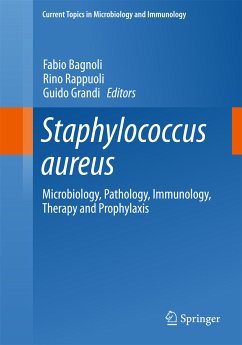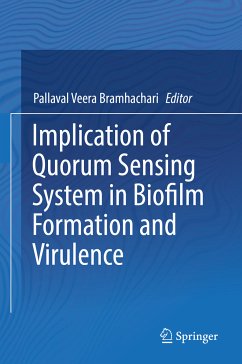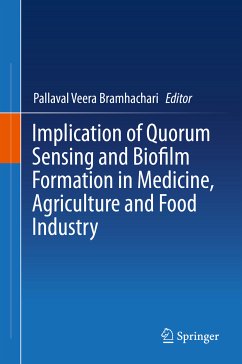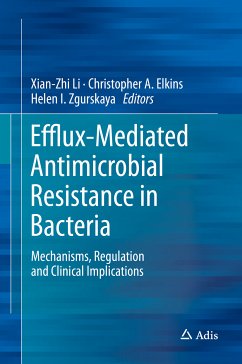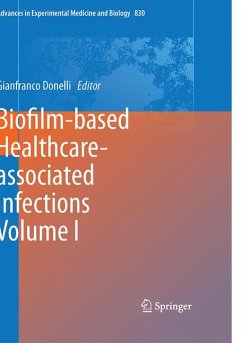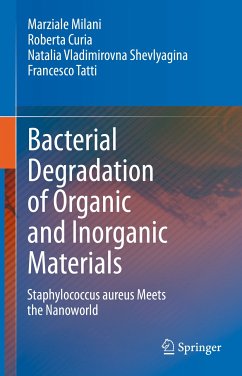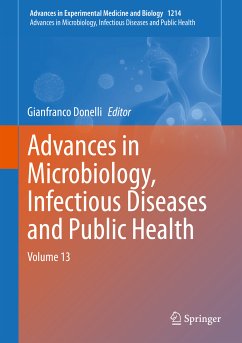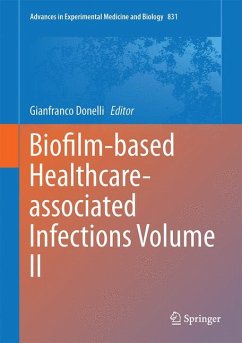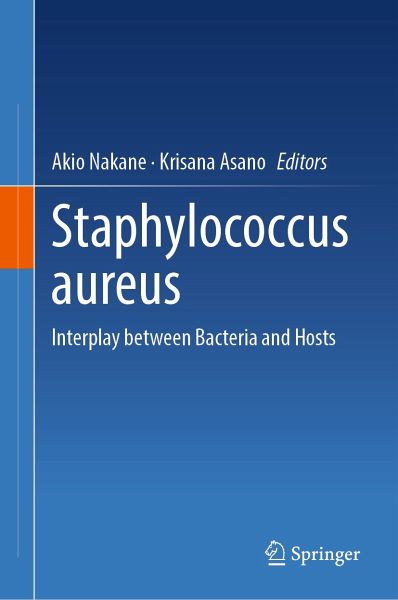
Staphylococcus aureus (eBook, PDF)
Interplay between Bacteria and Hosts
Redaktion: Nakane, Akio; Asano, Krisana
Versandkostenfrei!
Sofort per Download lieferbar
104,95 €
inkl. MwSt.
Weitere Ausgaben:

PAYBACK Punkte
52 °P sammeln!
Staphylococcus aureus is an opportunistic human pathogen that colonizes the mucosal surfaces. It is the causative agent of various serious acute and chronic infections. Recent prevalence of infectious diseases caused and expanded by hospital-acquired methicillin-resistant S. aureus (HA-MRSA), community-acquired methicillin-resistant S. aureus (CA-MRSA) and livestock-acquired methicillin-resistant S. aureus (LA-MRSA). MRSA infections must be more serious problem in near future. It is presumed that offense and defense responses are continuously executed between S. aureus and host to establish an...
Staphylococcus aureus is an opportunistic human pathogen that colonizes the mucosal surfaces. It is the causative agent of various serious acute and chronic infections. Recent prevalence of infectious diseases caused and expanded by hospital-acquired methicillin-resistant S. aureus (HA-MRSA), community-acquired methicillin-resistant S. aureus (CA-MRSA) and livestock-acquired methicillin-resistant S. aureus (LA-MRSA). MRSA infections must be more serious problem in near future.
It is presumed that offense and defense responses are continuously executed between S. aureus and host to establish and maintain commensalism for S. aureus. Therefore, it is essential to elucidate interplay between S. aureus and hosts to prevent staphylococcal infectious diseases. This book is comprised of content that focuses on this aspect.
It is presumed that offense and defense responses are continuously executed between S. aureus and host to establish and maintain commensalism for S. aureus. Therefore, it is essential to elucidate interplay between S. aureus and hosts to prevent staphylococcal infectious diseases. This book is comprised of content that focuses on this aspect.
Dieser Download kann aus rechtlichen Gründen nur mit Rechnungsadresse in A, B, BG, CY, CZ, D, DK, EW, E, FIN, F, GR, HR, H, IRL, I, LT, L, LR, M, NL, PL, P, R, S, SLO, SK ausgeliefert werden.




